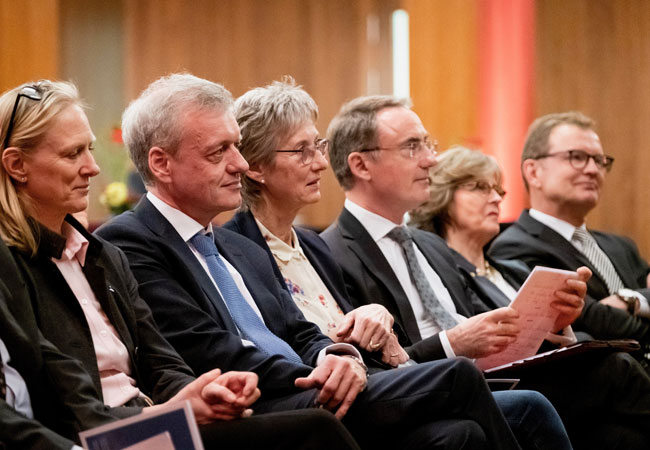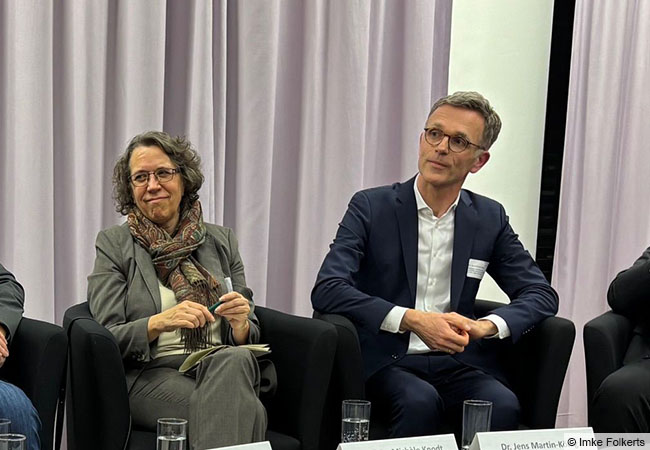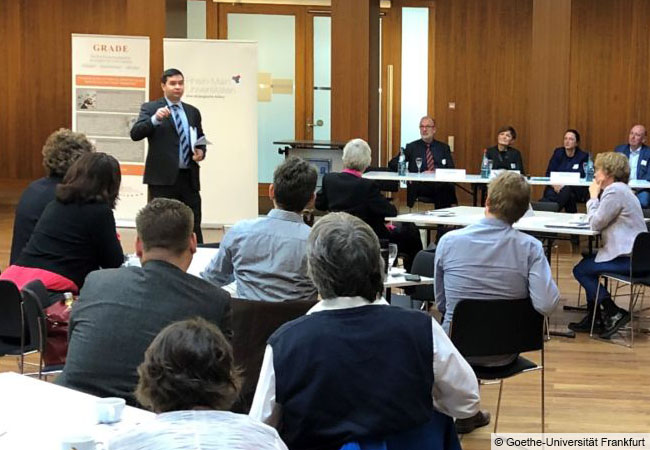
Professor Ferdinand Gerlach, Director of the Institute of General Practice at Goethe University, has received the Alfons and Gertrude Kassel Foundation’s Public Service Fellowship Award for his outstanding work as long-standing chair of the German Council of Health Advisors.
Every two years, the award, which includes a cash prize of € 10,000, is presented to Goethe University professors that are also active members of influential scientific or political organisations. The award money is to be invested in realising and facilitating projects and assignments that the special commitments of the award-winners prevent from finding the time to work on themselves.
Professor Gerlach has been committed to improving health care services in Germany for many years. At the award ceremony on 25th February, University President Birgitta Wolf thanked him for providing high-quality science-based political consulting services in an era of “fake news”. This also supports one of the university’s central objectives: to improve society through the results of its research. Vice President Manfred Schubert-Zsilavecz described Gerlach as Goethe University’s “model professor” and the “most important general practitioner in Germany”.
In his speech at the award ceremony, Professor Christoph Straub, Chairman of the Board of the BARMER health insurer, praised Gerlach’s long-time commitment to continuous quality improvement and the employment of evidence-based medicine in medical practice. As early as 1993, Gerlach developed ideas to improve the medical quality assurance process, and implemented quality compasses for family practitioners. In 2004, he devised the internet platform “Every-Mistake-Counts,” which enables general practices to anonymously report mistakes that others can learn from.
Ferdinand Gerlach was an early advocate of evidence-based medicine. He initiated the development of guidelines for general practice, a concept subsequently adopted in other medical fields. His areas of focus also include epidemiology in public health practice, digitalisation in the health sector, patient safety, healthcare for the chronically ill, and health services research. He has established three additional chairs for these special fields at the Institute of General Practice, as well as an endowed chair for polypharmacy and health services research from 1st March.
With his appointment as chair of the German Council of Health Advisors, Gerlach went from “the first family physician in the country to generalist and navigator of the health care sector,” said Straub. With his affable, thoughtful and unassuming demeanour, he is the “gentleman of political consulting,” yet he can also be tough and assertive, particularly when it concerns the accurate presentation of scientific issues. While this does not always make working with him easy, it is a successful formula. For example, the German government has only recently adopted many of the Council’s recommendations on emergency care.
Gerlach has also worked in various way to improve teaching and education in his field. His project “Landpartie” (country outing) encourages students to complete the practical part of their medical studies in rural practices, and thus helps to tackle the prevailing shortage of doctors in rural regions. He further organised a high-calibre lecture series to raise student awareness of diagnostic and therapeutic overtreatment, at which Eckhard von Hirschhausen spoke about the healing power of humour.







